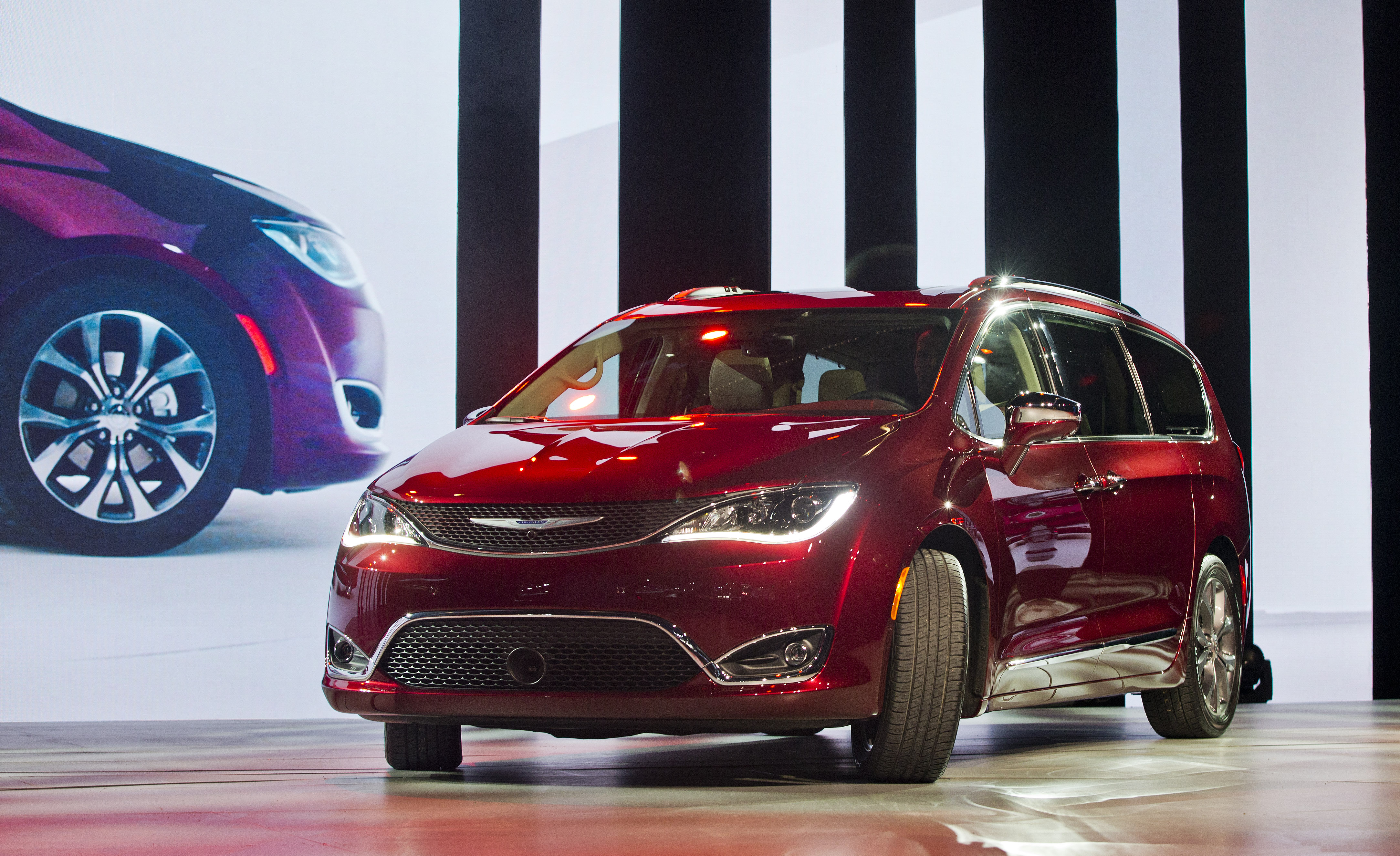NEWPORT BEACH, Calif. — Even though minivans generally aren't as larded up as SUVs, engineers at Fiat Chrysler Automobiles were determined to put the new 2017 Chrysler Pacifica on a diet.
Adding to the challenge: Engineers wanted to load up the new minivan with the latest technology and entertainment features that add weight.
Fiat Chrysler achieved the weight loss by using more aluminum in key places, such as the sliding minivan doors, and also by redesigning the basic frame.
At 4,315 pounds, the new Pacifica is 250 pounds lighter than the outgoing Chrysler Town & Country and is the lightest minivan on the road today, comparisons show.
"What we decided to do was support the structure where it needed to be reinforced and take away weight everywhere we knew could," said Jessica LaFond, chief engineer of minivans for FCA. "And then went after just every ounce."
Pacifica's weight loss program is part of the process of analyzing the structure of a vehicle and using lighter and stronger materials wherever possible without compromising safety.
The Auburn Hills, Mich., automaker has spent at least five years and $2.6 billion developing the Pacifica and the Windsor Assembly Plant. FCA's big bet on the Pacifica comes as sales of all minivans have dropped by more than half to just over 500,000 in the U.S. in 2015 from 1.37 million in 2000.
"Chrysler invented the minivan, and it invested heavily in it, and has dominated the market. It makes sense for Chrysler to stay with it," said Michele Krebs, senior analyst at AutoTrader.com. "My big question is how good is the quality going to be. They are going up against two brands that have great quality...and there is no way of knowing that until it is on the road."
The weight of any vehicle is crucial because it directly impacts fuel economy. At the same time, there's an increasing demand for safer cars with high-tech features that can add weight.
LaFond said engineers used a combination of high strength steel, aluminum and magnesium at key locations throughout the minivan to either enhance its strength and rigidity or to reduce the weight.
"We weren’t willing to sacrifice strength and weight where we needed it," LaFond said. "So that sort of doubled the challenge for us."
FCA saved 40 pounds just by using aluminum panels for the sliding side doors. Another eight pounds was saved by welding five pieces of high-strength steel together for the structural ring around the front doors. The Pacifica uses 22% more high-strength steel than its predecessor.
FCA designers saved additional weight by using aluminum knuckles and an aluminum control arm in the front suspension and by using a magnesium crossbeam inside the instrument panel.
Magnesium is an ultra lighter-weight but strong metal increasingly popular with automakers looking to shed weight. Magnesium is the lightest of all commonly used structural materials, according to trade group the International Magnesium Association.
In some places, such as the front end, Fiat Chrysler added reinforcements.
The extra steel in the front is designed to help the Pacifica pass the small overlap frontal test -- a difficult crash standard adopted a few years ago by the Insurance Institute for Highway Safety, a nonprofit organization funded by auto insurers.
The Honda Odyssey became the first minivan to pass the test in 2013. LaFond says she expects the Pacifica to pass the test.
Aluminum, magnesium and high strength steel all cost more than traditional steel, LaFond said.
Cutting weight also helps the Pacifica achieve a 10% better fuel economy rating than the outgoing model. The Pacifica has been rated at a combined fuel economy of 22 miles per gallon, putting it near the top of its class among minivans.
Even so, that still wasn't good enough for Pacifica to be the thriftiest minivan on the road. The Nissan Quest gets a combined 23 m.p.g. and the 2016 Honda Odyssey also gets a combined 22 m.p.g.
"From our perspective we were proud of being able to match that level of fuel economy with the improvements we made," LaFond said.
How much does each minivan weigh?
Chrysler Pacifica: 4315 – 4616 pounds
Nissan Quest: 4,349 -- 4,553 pounds
Honda Odyssey: 4,396 -- 4,613 pounds
Kia Sedona: 4,411 -- 4,656 pounds
Toyota Sienna: 4,415 -- 4,553 pounds

![AP AUTO SHOW CHRYSLER F USA MI [image : 82044148]](http://www.gannett-cdn.com/media/2016/03/20/USATODAY/USATODAY/635940390278620081-ChryslerPacifica16.JPG)

